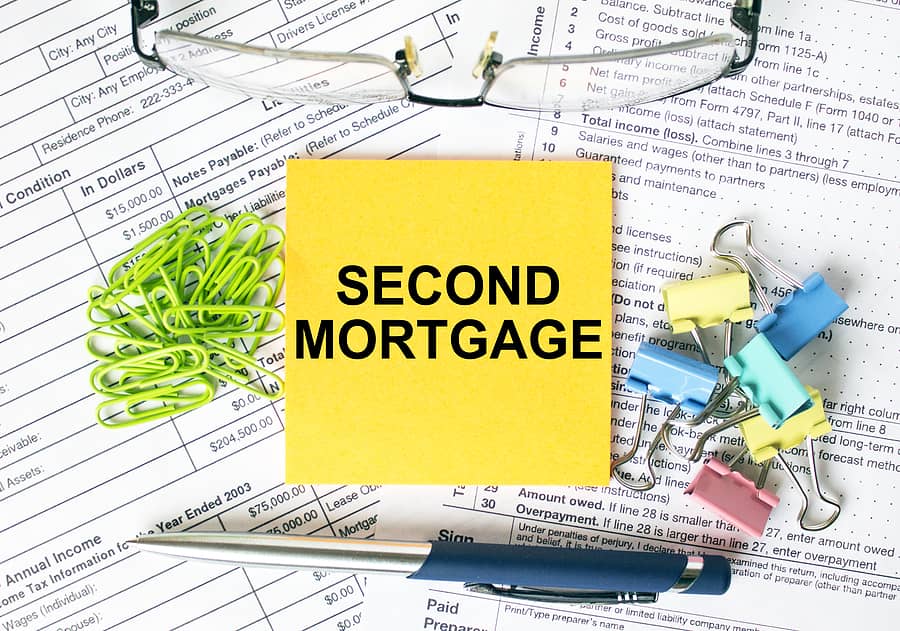When money gets tight, you need to know your options. Maybe you considered getting a second job, selling your car, or requesting a raise. If you tried these strategies and still feel financial stress, you might need financial assistance. Perhaps you have a large renovation in mind and don’t have access to any spare funds. In such cases, you might consider a second mortgage.
What Is a Second Mortgage?
A second mortgage is an additional mortgage you get on a property that already has a mortgage. A second mortgage can look like a regular mortgage, where you borrow all the funds at once. It can also come in the form of a home equity line of credit (HELOC), where you borrow funds as you need each month up to an amount approved by your lender.
You can use a second mortgage for debt consolidation, mortgage refinancing, renovations, investments, or to pay for unexpected expenses like medical bills. It is important to remember that you must still make monthly payments on your first mortgage while managing a second mortgage.
How Do I Qualify for a Second Mortgage?
To qualify for a second mortgage, you need more than 20% equity in your home in urban areas or more than 35% in rural areas. Equity is the portion of your property that you own and have paid for.
Qualifying for a Second Mortgage from a Bank or Major Financial Institution
If you decide to borrow from a bank or other major financial institution like a Credit Union or a Home Equity Bank, there are several requirements you need to meet in order to get your second mortgage approved.
Financial institutions may require over 20% home equity and a specified minimum credit score for approval. Banks may request details on your profession, education, or annual income before approving your second mortgage application.
Qualifying for a Second Mortgage with Private Lenders
To qualify for a second mortgage from a private lender, the only requirement is that you have at least 20 percent equity in your home. Private lenders do not look at your education, occupation, income or credit score.
Interest Rates
Second mortgages are considered riskier than first mortgages and thus have higher interest rates. In default, the first mortgage lender is paid first from property sale proceeds, with any remainder for the second.
The interest rate for a second mortgage will depend on the type of lender you use, how much you borrow, whether you have a standard second mortgage or a HELOC, and how much equity you use to secure the second mortgage. The location of your home also influences the interest rate lenders will charge.
Urban borrowers typically receive lower interest rates than rural borrowers from both banks and private mortgage lenders. Urban areas have lower interest rates due to higher property turnover and perceived lower investment risk by lenders. Borrowers in urban communities can borrow more against their homes before incurring higher interest rates.
To manage second mortgage interest rates, aim not to borrow over 65% of your property’s equity in urban areas. If you reside in a rural area, borrowing less than 50% of your home equity is advisable to maintain lower interest rates.
Your Credit Score
Banks will require a credit score of at least 550 to get approved for a second mortgage. The higher your credit score, the more likely you are to get a lower interest rate. No credit score is needed with private lenders; they approve loans based solely on your home equity.
Getting a Second Mortgage in Ontario
Banks offer second mortgages, and they usually require a certain income, credit score, credit history and possibly other information. Banks will typically offer second mortgages in the form of a Home Equity Line of Credit (HELOC). A HELOC can allow you to borrow up to 65% of the purchase price or $260,000, whichever is less. A bank can lend up to 95% of the value of your home equity, but only on insured mortgages.
Second mortgages from private lenders benefit borrowers who lack sufficient income, credit score, occupation, or credit history for bank approval. Borrowers in urgent need of cash will probably not meet all the requirements banks need for approval. Private lenders can lend up to 75% of the value of your home equity.
Researching, getting referrals, and comparing deals are crucial for making informed decisions. Sometimes, it is challenging to get comparable information about private lenders since they rarely advertise. However, the Mortgage Broker Store has a vast network of private lenders from across Ontario. You can access this network via email or phone for free financial advice. Over the past few years, millions of Canadians have opted for a second mortgage to pay debt and prevent bankruptcy. If you’d like a free consultation on your situation, call 416-499-2122 or email ron@mortgagebrokerstore.com, and we will get back to you the same business day.



